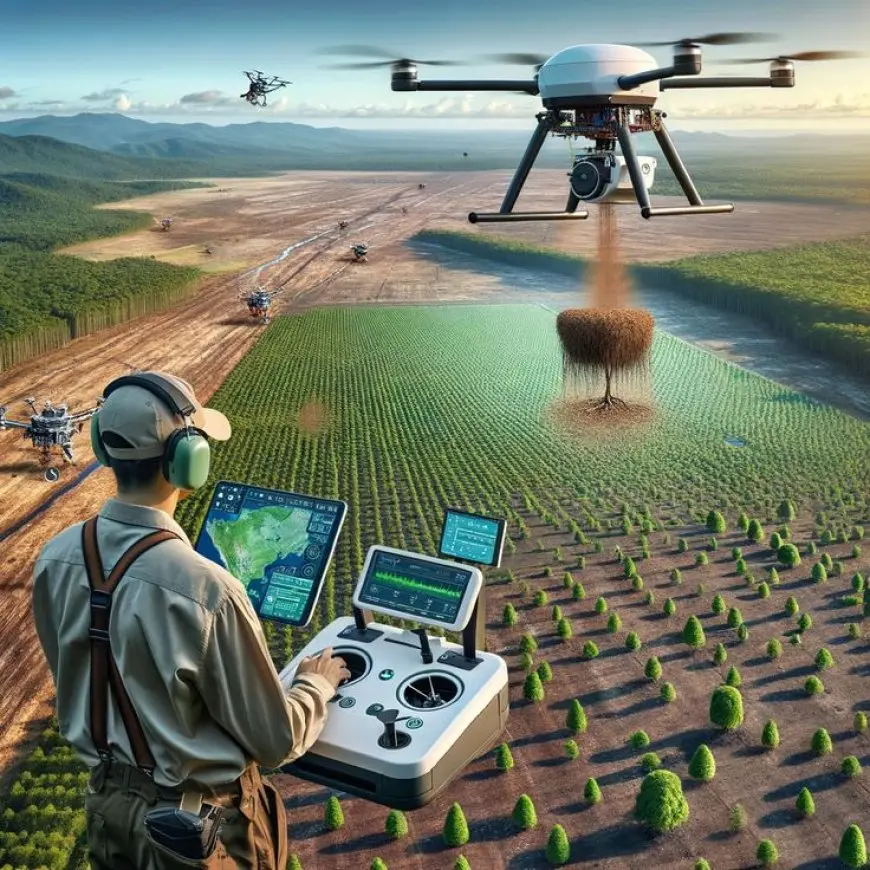What Is Sustainable Farming?
What Is Sustainable Farming?

Sustainable farming, also known as sustainable agriculture, refers to farming practices that meet the needs of the present without compromising the ability of future generations to meet their own needs. It involves methods of food production that are environmentally friendly, economically viable, and socially responsible. Sustainable farming strives to balance the needs of food production with the health of the ecosystem, aiming to minimize harm to the environment while promoting biodiversity and long-term food security.
Principles of Sustainable Farming
Sustainable farming is built on several core principles that guide farmers in making decisions that benefit the land, the community, and the economy:
-
Environmental Stewardship: This principle emphasizes the need to protect the land, water, air, and biodiversity that farming relies on. Sustainable farmers use practices that conserve natural resources, such as crop rotation, cover cropping, and reduced chemical use. This helps to maintain soil health, reduce pollution, and preserve ecosystems.
-
Soil Health: Healthy soil is fundamental to sustainable farming. Farmers use practices such as composting, no-till farming, and integrating organic matter to maintain and improve soil fertility. Healthy soils increase water retention, reduce erosion, and support a variety of beneficial organisms, which all contribute to more productive and resilient crops.
-
Water Conservation: Efficient water use is crucial in sustainable farming. Farmers adopt methods like drip irrigation, rainwater harvesting, and mulching to reduce water waste and improve water availability for crops. Water conservation not only helps reduce costs but also protects local water sources.
-
Biodiversity: Sustainable farms prioritize biodiversity by growing a variety of crops, raising diverse livestock, and creating habitats for wildlife. These practices help support healthy ecosystems and contribute to resilience against pests, diseases, and changing climate conditions.
-
Economic Viability: Sustainable farming seeks to create a financially stable farming operation that can thrive over the long term. By reducing dependence on expensive synthetic inputs, such as chemical fertilizers and pesticides, and focusing on local markets, sustainable farmers often find more cost-effective ways to produce food.
-
Social Responsibility: Sustainable farming practices also consider the well-being of farmers, workers, and local communities. Fair wages, safe working conditions, and community involvement are key components of social responsibility in sustainable agriculture. Additionally, sustainable farming encourages local food systems and promotes healthier diets for consumers.
Practices in Sustainable Farming
Several specific farming practices are commonly associated with sustainable agriculture:
- Crop Rotation: This involves planting different crops in a planned sequence over multiple seasons. It helps to break pest cycles, reduce soil depletion, and maintain soil fertility.
- Agroforestry: This practice integrates trees and shrubs into farming systems. Trees can improve soil quality, provide habitat for wildlife, and contribute to carbon sequestration.
- Organic Farming: Organic farming avoids synthetic chemicals and fertilizers, focusing instead on natural alternatives such as compost, manure, and biological pest control. Organic farms also emphasize crop diversity and soil health.
- Integrated Pest Management (IPM): IPM combines biological, cultural, and mechanical control methods to manage pests, reducing reliance on chemical pesticides.
- No-Till Farming: This practice avoids disturbing the soil structure by not plowing or tilling the land. It helps prevent soil erosion, improves water retention, and reduces the need for fertilizers and pesticides.
- Permaculture: Permaculture is a holistic design system that mimics natural ecosystems. It emphasizes closed-loop systems, where waste is minimized, and resources are reused efficiently.
Benefits of Sustainable Farming
Sustainable farming offers numerous benefits for the environment, society, and economy:
- Environmental Protection: By reducing the use of harmful chemicals and conserving natural resources, sustainable farming helps protect air, water, and soil quality. It also supports biodiversity and combats the loss of habitats.
- Climate Change Mitigation: Sustainable farming practices such as agroforestry, carbon sequestration, and reduced use of fossil fuels contribute to mitigating climate change by absorbing CO2 from the atmosphere.
- Improved Health: By reducing the reliance on chemicals, sustainable farming promotes the production of healthier, pesticide-free food, which can have positive effects on public health.
- Resilience to Climate Change: Sustainable farms tend to be more resilient to extreme weather events, such as droughts or floods, because they focus on soil health, water conservation, and biodiversity.
- Economic Sustainability: Although sustainable farming may require more upfront investment, over time, it can be more cost-effective by reducing dependency on external inputs, such as fertilizers, pesticides, and irrigation systems. It also provides opportunities for farmers to diversify income sources by selling to local or niche markets.
- Community Support: By focusing on local food production and reducing reliance on global supply chains, sustainable farming fosters stronger community ties and promotes local economies.
Challenges to Sustainable Farming
While sustainable farming offers many benefits, it also faces challenges. Transitioning from conventional to sustainable practices can be expensive and requires education, investment, and time. Many farmers may also face pressure to produce higher yields using conventional methods, which can be more immediately profitable. However, with growing consumer demand for organic and sustainable products, as well as increasing governmental support and policy changes, the future of sustainable farming looks promising.
The Future of Sustainable Farming
As concerns over climate change, food security, and environmental degradation grow, the importance of sustainable farming will continue to rise. Farmers, consumers, and governments all have a role to play in promoting sustainable agricultural practices. By supporting policies that encourage sustainable farming, investing in research and innovation, and making informed choices as consumers, we can help build a more sustainable food system for future generations.
:







